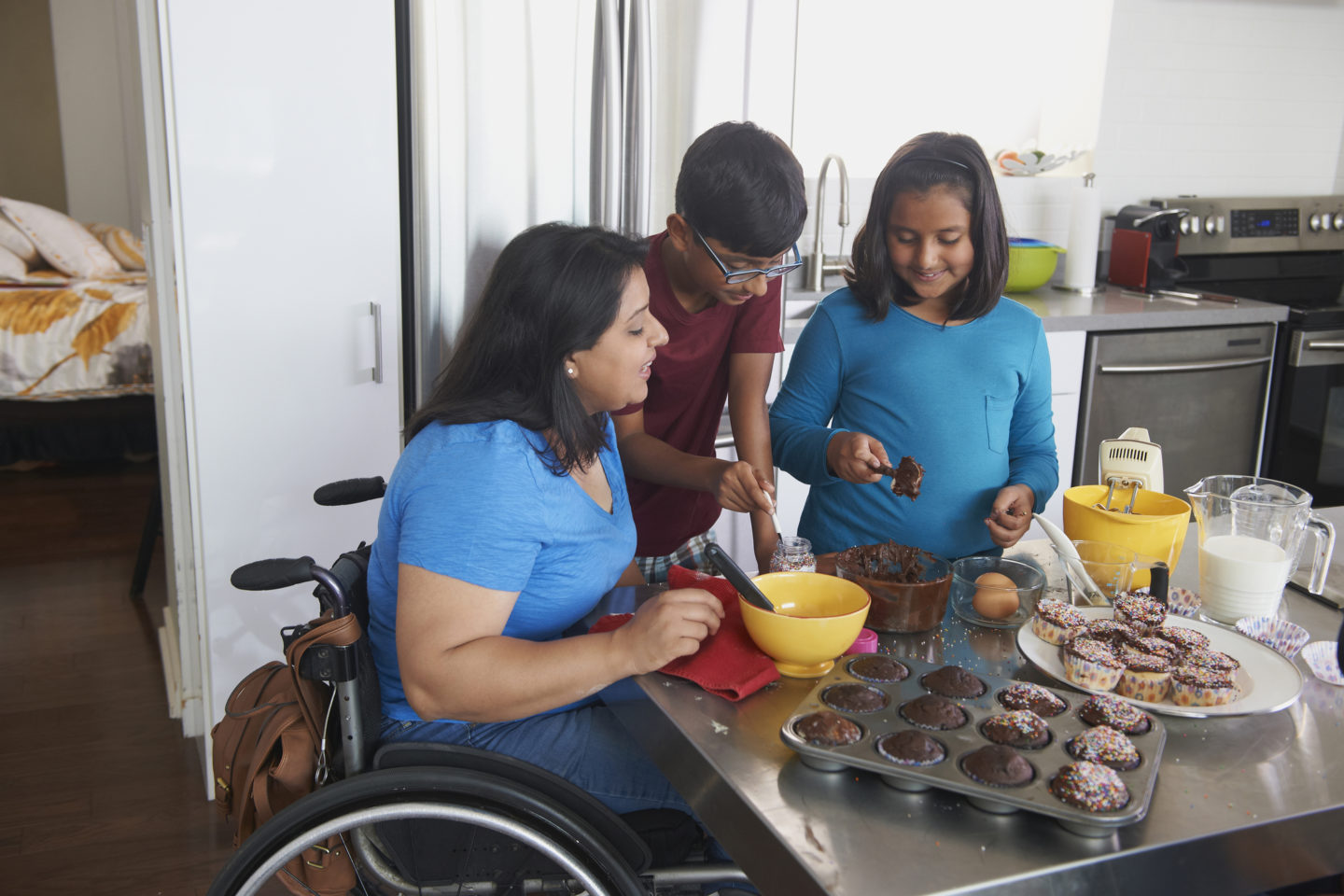Disabled mothers continue to face both legal and societal discrimination in the U.S.
Motherhood, along with everything associated with it, has been a prominent topic in the news for years. Whether it is maternity leave, LGBTQ motherhood and adoption, or abortion, various aspects of motherhood have been hot topics with politicians, activists, and the everyday citizen. However, disabled motherhood is a topic that gets overlooked again and again. Considering that more than six percent of parents in the United States are disabled with children under the age of 18 – approximately 4.1 million people, though research surmises numbers are even higher than that – it seems like disabled mothers would take more prominence in the minds of everyone.
“One of the worst things anyone ever said to me was ‘how could you do that to your kid?’” A., a 32-year-old woman and mother, tells me. She was born with cerebral palsy due to birth complications. “It’s like, because I’m disabled, [people think] I can’t love my kid or take care of him like a regular person. It’s insulting and…infuriating. I’m just as good [of a mother] as anyone else. Probably better because I know compassion.”
She says that the hardest thing about being a disabled mother wasn’t her disability or the symptoms associated with it, but the way society treats her because of it. When she expressed the desire to become a mother, people, including her doctor and her “own freaking mother” tried to talk her out of it despite it being her dream.
In 2012, the National Council on Disability released a report called Rocking the Cradle: Ensuring the Rights of Parents with Disabilities and Their Children, with the goal to “advance understanding and promote the rights of parents with disabilities and their children.” They found that one of the biggest problems disabled parents have is retaining custody of their children. Between 40 and 80 percent of parents with an intellectual disability lose custody of their children, while findings were as high as 70 to 80 percent of mentally ill parents. Around 13 percent of parents with a physical disability have been discriminated against during custody cases, and Deaf or blind parents also “report extremely high rates of child removal and loss of parental rights.”
Buck v. Bell, a court case that dates back to 1927, declared that it was constitutional for disabled women to be sterilized against their will. The case involved an institutionalized woman named Carrie Bell, daughter to a woman that was also institutionalized. At age 17, she was raped and gave birth to a disabled daughter and it was determined then by the institution that she should be sterilized. Eventually, under Virginia’s sterilization laws, Carrie Bell’s sterilization was deemed legal. Justice Oliver Wendell Holmes, Jr. stated that it is “better for the world if, instead of waiting to execute degenerate offspring for crime or to let them starve for their imbecility, society can prevent those who are manifestly unfit from continuing their kind…Three generations of imbeciles are enough.”
Today, eugenics, along with Buck v. Bell, are still legal. More than 65,000 Untied States citizens were involuntarily sterilized by the 1970s and by 1999, 27 states had restrictions for mentally ill parenthood on the books. A judge had to stop the parents of an adult disabled woman from forcing her to get an abortion “against her beliefs” and to have her tubes tied so she couldn’t be able to conceive in the future. This was as recently as 2012.
Forced sterilization of disabled children by parents has been on the rise since 2004 when Ashley X, a six-year-old child, began treatment to ensure she would never have the body of an adult. She was given high doses of estrogen to fuse her bones and stop grown, breast bud removal surgery, and a hysterectomy. It has since been dubbed the Ashley Treatment. The director of the National Disability Rights Network, Curt Decker, believes that there are potentially thousands of families “actively exploring the possibility” of the Ashley Treatment for their own children.
While the legal rights of disabled mothers remain a pressing concern for disabled people and activists, the societal pressure disabled mothers and potential mothers face is also damaging. A physically disabled mother, Cassandra, says that she often gets questioned by total strangers about her parental abilities. A mother with physical disabilities discusses how she and her husband married around the same time as several friends. “Almost immediately…my fellow brides would complain about the annoyance they felt when people peppered them with questions about when they were going to have a baby. That certainly wasn’t a question that people lined up to ask us.”
Like A. from earlier in the article, many disabled women face discrimination from their own family members who don’t understand what it means to be disabled. Jessica, a woman that has cerebral palsy, told her mother she was pregnant with twins. Her mother responded, “Now your husband has three babies.” A physically disabled mother, Carrie, faced discrimination from her father, who told her it was irresponsible for her to have children, predicting she would be an “unfit mother.” She says she turned out to be one of the “fittest mothers” she knows.
For these laws to eventually change, societal attitudes need to change. Salamishah Tillet, an Associate Professor of English and Africana Studies at the University of Pennsylvania, states that, “We are stuck in a hierarchy of traditional reproductive rights activism, which has historically placed abortion as its primary concern, and other issues, like forced sterilization, far below.”
Disabled rights activists, such as ADAPT, a grassroots organization that seeks “to assure the civil and human rights of people with disabilities [get] to live in freedom,” work tirelessly to change the lives of disabled people nationwide, including disabled mothers.
“I’ll probably be dead by then,” A. says, “but I can’t wait for the day things change for disabled [mothers] this country. That’s the future I want to see.”




comments